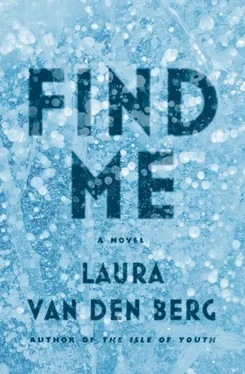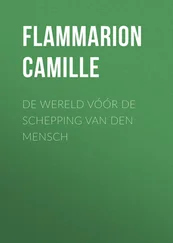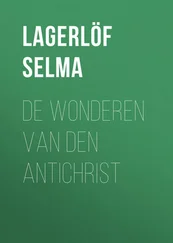“Do you hear that noise?” I ask.
He nods, eyes still closed. “It sounds like a machine.”
“Sometimes I hear it through the walls.” The sheets slide down my shoulder, and I am relieved at the sight of smooth healthy skin. “Sometimes I imagine I can say things and the twins will hear me.”
He starts counting the knots of my spine. I feel the light pressure of his fingers moving up my back, toward the sensitive spot at the base of my neck.
We stay by the hole. We take turns sticking our hands into the opening and breathing the strange air. We feel the vibrations on our skin. After we slide the tarp back into place, Louis scoops me up like a bride and carries me to our room. In the morning, when a nurse comes for us with chilly alcohol wipes and cuffs and needles, the edges of our sheets are stained black with dirt.
Louis gets his morning exam. I’m sitting on my bed and staring at the dates the nurses have forgotten to mark on the bird calendar, counting up our blank days like they are something that can be repaid. When I look over at Louis, he is doing the Romberg, only he’s doing it differently than before. His back is to me and I can see his shoulders tipping to the right, a statue about to topple over.
N5 says to try again and I watch his body sway like he’s being pushed by a wind.
She takes out her little flashlight and starts checking his skin. She looks under his sleeves and along his throat and down his back and inside his mouth. She’s checking one of his legs when the light stops. She doesn’t move to the next phase of the exam. She leans closer to Louis and all I can hear is her breathing.
He sits down on his bed and rounds his back, the bumps of his spine pressing against his green scrubs.
“There’s an abnormality,” she says.
She turns off the flashlight and packs her kit. She tells us to stay in our room and we nod dumbly. We don’t need to ask where she’s going. We know she’s getting Dr. Bek.
When I hear the click of the door closing and look at Louis on his bed, hunched under the lights, his hands squeezing the edges of the mattress, I feel something inside me pop — a sharp sudden break, like a wishbone snapping. Microburst after microburst after microburst.
Louis keeps sitting on the bed. He doesn’t say anything, doesn’t turn to look at me. I go to him. I kneel at his feet and push up the leg of his scrub and there it is: a blister the size of a quarter on his shin, rough and silver in the center, ringed with pink. For a while, we sit wrapped in heavy silence.
“What’s your name?” I ask him.
“Louis,” he says.
I roll down the scrub. His feet are bare. I stroke the knobs of bone on his ankles.
“What’s my name?”
“Joy.”
“How long have you lived here?”
“Six months.”
“How long have you been alive?”
“Three decades or thirty years. However you want to say it.”
Three decades or thirty years or not nearly long enough.
“What do you want more than anything?”
“To be alone with you.”
I kiss his knee. He puts his hand on the back of my head.
“You’re going to be fine,” I say.
* * *
By breakfast Louis has been moved to the tenth floor, where there are no roommates or even visitors. No activities or pilgrims or microwaves. I skip breakfast and I skip the Community Meeting, where I know his relocation will be announced. I sit in our closet, behind a curtain of scrubs, and remember.
In our room, Dr. Bek sat next to Louis, the mattress sinking under his weight, and asked him a series of questions. The basics, at first. Name? Age? Do you know where you are? His voice was warm and low inside his suit and did not sound like it was filled with lies. The more he went back — address in Philadelphia? high school attended? age at mother’s death? — the more each answer became a stab of uncertainty.
When Dr. Bek asked how his mother died, Louis’s eyes got quick and damp and I could tell he was searching for an authentic memory.
“Sick,” he tried. “Sick for a long time and then she died.”
Dr. Bek told me to get Louis’s slippers. I set his slippers down in front of him and he looked at them like he had no idea what they were and Dr. Bek said, “Joy, help him,” so I kneeled beside him again and pushed his toes into the cloth openings. His feet were heavy and cold. “Of course, of course,” Louis said, and slid his feet the rest of the way in.
“I’ll see you,” Louis said before he rose from the bed. Every movement, every breath, was weighted with shock. I couldn’t be sure he still knew he was talking to me and if he was, there was nothing in the world I could think to say back to that.
I stay in the closet through dinner. I don’t get hungry. I feel like my life is a tent someone has folded up and carried away. I squeeze the empty legs of Louis’s scrubs and go back to what the Pathologist’s voice told us in November, before the snow came, when he said all we needed to do now was keep breathing.
I try to keep breathing.
After Lights Out, I lie in Louis’s bed and find the part of the mattress that still has the shape of his body. I push my nose into his sheets like a burrowing animal. I wrap my arms around his pillow and hold on.
* * *
In the morning, after N5 has completed my exam and marked the day on the calendar, remembering the gesture for the first time in weeks, she starts stripping Louis’s sheets. When the corners rise and I see the green mattress beneath, I rush over to the bed and yank the sheets away. She stumbles back. I bunch the fabric in my arms and run out of the room and down the hallway. I run like I’m making a break for it. Like I’m Paige trying to beat her fastest time. My hair blows back. My feet smack the floor. I pass patients from our Floor Group and somebody whistles. I burst through the double doors that lead to the Dining Hall. I lope around the empty room, slowing and winded, like a toy winding down. I stand on a chair and wrap the sheets around my body. The fabric stretches, turns translucent, and my elbows look strange through the cloth. I crawl under one of the long tables, like the twins used to do, and sit surrounded by the silver legs of the chairs and it hits me that I am alone, so totally alone, and there is no place for me to go from here.
* * *
I’m still under the table when I hear the Pathologist’s voice on the speakers, telling me I’m wanted in Dr. Bek’s office. By now I know he might not even be a real pathologist, that he is only a voice, a stupid human voice, and in the Dining Hall I have a premonition that this is the last time the Hospital will give me an order that I follow.
* * *
In Dr. Bek’s office, there is something different about the Troll Wall poster: it has a little tear, right above gray cliffs, like someone has been jabbing the fog with a pencil. During our meeting, his computer keeps chirping and I keep thinking of birds. I tell him what I want and that my terms are not negotiable.
* * *
In the library, as I wait for news of Louis, I start a letter to my mother. I want to tell her about my life. I do not go in order. Instead I begin with the bus ride to the Hospital, the desolate view from the windows and the blond man sitting next to me. In Ohio, we passed a miniature golf course, dinosaur-themed. An orange plaster T. rex loomed over the abandoned green. “He used to be at the top of the food chain,” Louis said. Those were the first words he spoke to me.
“What’s that?” Rick asks from the library doorway. He’s been in the Hospital for weeks, but still looks like he’s just wandered out of the woods.
“A story,” I tell him.
I think he’s going to leave, but instead he comes into the library. He stands in a corner for a moment and I remember Curtis’s stories and start to get nervous, start to anticipate a foul smell. He takes an encyclopedia from a shelf and pages through it.
Читать дальше












